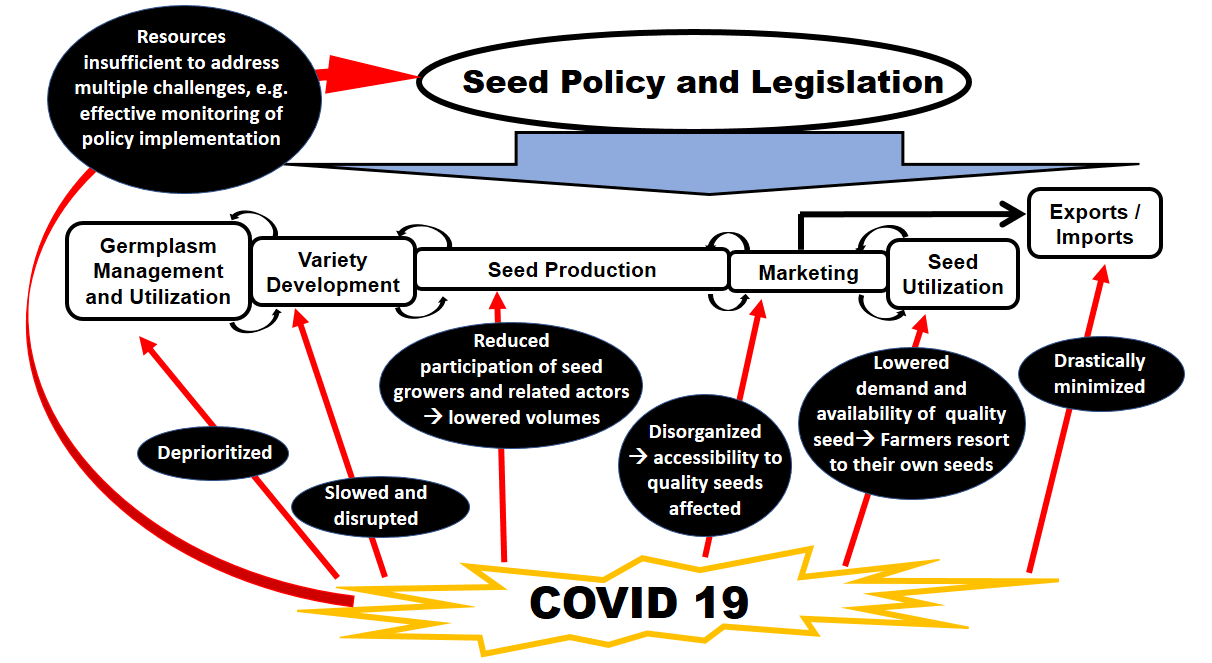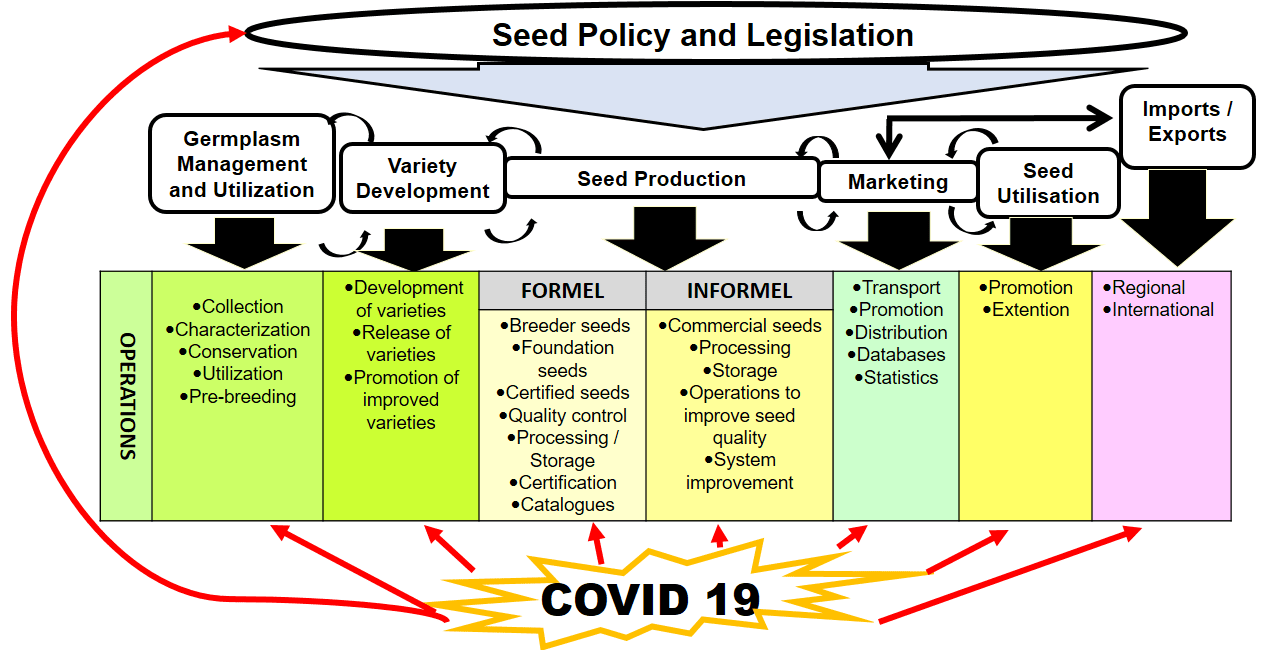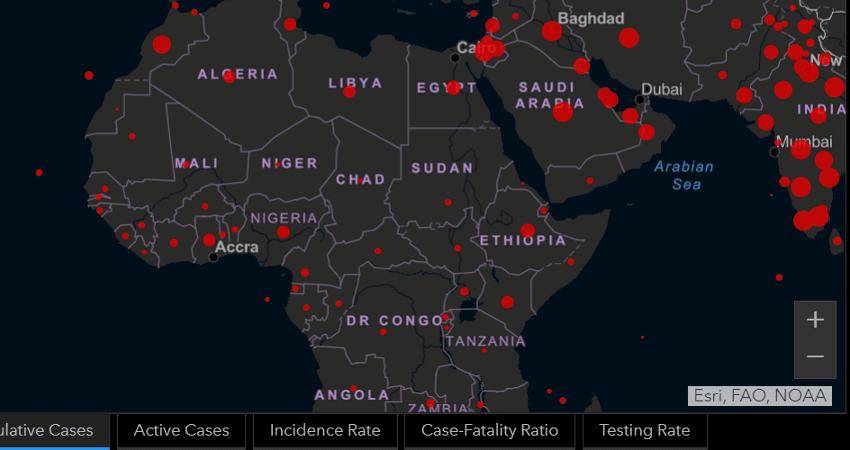With COVID-19, the agricultural sector is now facing unprecedented challenges that require interventions that are specific to countries, as well as concerted initiatives at regional and continental levels. Faced with this situation, many governments and organizations are adopting emergency measures aimed primarily at mitigating the adverse effects of the pandemic on agricultural production by strengthening the resilience of the production system. However, the success of these operations cannot be assured without addressing the central issue of seeds, which constitute the starting point of agricultural production.
Indeed, unless swift action is taken to facilitate producers' access to seeds and other inputs, disruptions caused by COVID-19 will inevitably lead to a decrease in agricultural production due to the unavailability of quality seeds required for planting on time during the growing season. In this context, it is recommended that the issue of pandemic effects on the seed sector be addressed along the seed value chain.
Impact of the pandemic on the seed sector
Although more data is still required for the precise appreciation of the situation, it is established that the effects of the pandemic on the seed sector are diverse, for example:
- a decrease in the mobility of agents for field operations;
- a significant drop in the availability of labor for different operations;
- difficulties in accessing inputs;
- difficulties in accessing project funding;
- a decrease in requests for approval for seed production;
- disruption in the distribution of seeds.
With the following consequences, among others:
- a reduction of seed production activities;
- a reduction in the availability of quality seeds on the market;
- a reduction in producers' access to quality seeds; increase in the use of all-round seeds;
- a reduction in food production in the short term.
Some of the potential effects of the COVID-19 pandemic on the seed sector through the seed value chain are summarized in diagram below.
Examples of impact of the COVID-19 pandemic on seed systems in Africa

Strategies for resilience
To mitigate the effects of COVID-19 on the seed sector, governments, national and international organizations tend to adopt actions that are often specific to their respective situations. However, the nature of the challenges of the pandemic in the seed sector requires that, as much as possible, actions against COVID-19 be integrated and coordinated at national, regional and continental levels to ensure effectiveness.
As mentioned earlier, the effects of the pandemic are best assessed when they are analyzed at the level of the different components of the seed value chain, but this process would be more effective if it is done through the major seed operations at each component, as shown in diagram below.
Mecanisms for disrupting seed systems by COVID-19 in Africa

Thus, for example, at the level of genetic resources management, it is important to realize how the pandemic affects the operations of collection, characterization and use of genetic resources, as well as pre-selection operations. Similarly, at the level of the seed production segment, it is essential to understand how the operations of production, packaging, storage and quality assurance are affected.
It is also crucial, in resilience strategies, to anticipate conditions for a revival of agricultural activities in the post-crisis period. One must ensure that the immediate measures taken contribute also to guarantee, among other things, availability and access of seeds to farmers for both the current and next agricultural seasons.
In a nutshell
Issues relating to resilience to various disasters including that of the COVID-19 pandemic must be addressed in an integrated and coordinated manner at the national, regional and continental levels. This requires consultation at these different levels using field information from various sources.
It is also essential to integrate into the seed sector resilience strategies against the COVID-19 pandemic the role of Governments at two levels: (i) at a political level which enables the Government to orient actions by partners at the national level, so that the actions are in conformity with the development objectives defined by the Government; (ii) at an operational level that allows the State to support seed actors, by granting them financial, material and institutional support to enable them to effectively implement the measures they would have adopted, depending on the specificity of their respective seed operations, as well as the nature of the effects of the pandemic.
When the pandemic is eventually over, we look forward to avoiding an even more devastating replacement occurring in its wake, in the form of catastrophic food insecurity. Attending to the seed security needs of Africa by observing the above steps is a pathway to ensuring a food-secure future following the pandemic.

